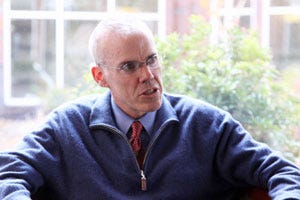|
 |
350 CHICAGO
Pushing Forward on Climate Solutions Under the Second Trump Administration
Where Trump is moving backwards on climate, we're pushing forward. The Fossil Fuel Divestment Act is re-introduced into the Illinois General Assembly and Bill McKibben, 350 founder, speaks on solar!
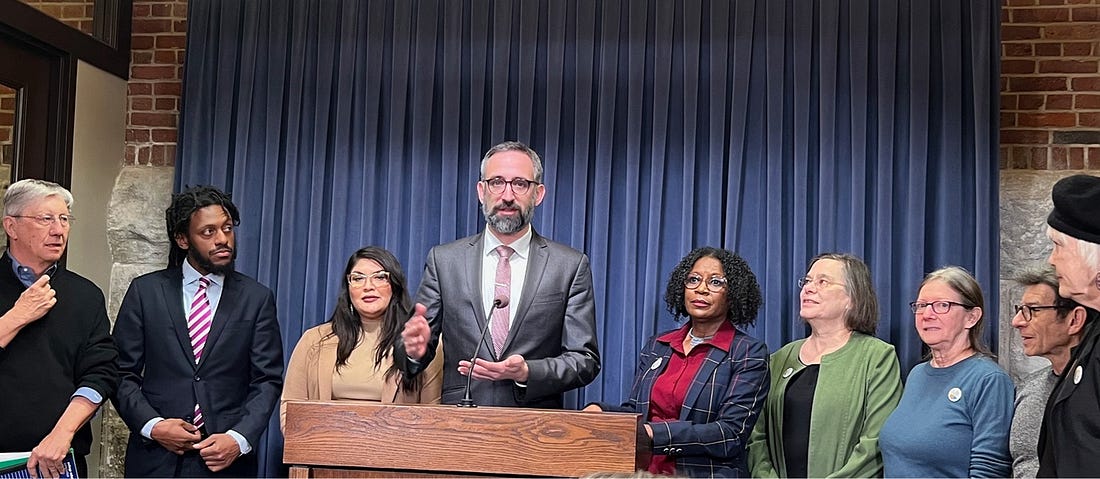 |
In This Issue
Events
Feb 6: Book Signing: ‘Advocate’ by Eddie Ahn
Feb 10: 350 Chicago General Meeting
Feb 13: Clear Skies, Clear Minds: Harnessing Open Research to Find Climate Solutions
Feb 20: Chicago Climate Connect Discussion
Feb 25: Mass Deployment of Solar and Fighting Climate Change in the Second Age of Trump: A Talk by 350 Founder Bill McKibben
March 1: 350 Chicago at Wild Things Conference
In Brief
Fossil Fuel Divestment Act Re-Introduced into Illinois General Assembly
Submit Feedback for Cook County Environmental Justice Policy
350 Chicago Bluesky Account is live!
Trump Executive Orders
Events
Book Signing: ‘Advocate’ by Eddie Ahn
Thursday, February 6th, 7:00pm-8:00pm
Everybody’s Coffee, 935 West Wilson Avenue Chicago, IL 60640
Via Eddie Ahn, Mary Baker, and Everybody’s Coffee: Come join us for a special in person event with Eddie Ahn, the author of "Advocate," presented by the Book Cellar in Chicago. Get the chance to meet Eddie, ask him questions, and have your book signed and stamped with special art! More info and registration here.
350 Chicago General Meeting
Monday, February 10, 6:30pm - 7:30pm
via Zoom
Join 350 Chicago for our General Meeting! During the meeting, we will provide campaign updates and discuss the work 350 Chicago is doing in Chicago and Illinois to help preserve a livable planet. We will also provide information about ways to volunteer and get involved with 350 Chicago. Please contact [email protected] to attend the General Meeting, we will send you the zoom link.
Clear Skies, Clear Minds: Harnessing Open Research to Find Climate Solutions
Thursday, February 13, 2025, 8:30am - 1:30pm
The Joseph Regenstein Library, Room 122, 1100 East 57th St, Chicago, IL 60637
Via the University of Chicago: Learn about climate change and its impacts as explained in plain language, develop an understanding of climate systems engineering as a solution to climate change problems, and discover how open science can help advance climate research and education about climate change. This includes a breakfast and post-event reception.
More information here: Clear Skies, Clear Minds.
Chicago Climate Connect
Thursday, February 20th, 6:00pm - 8:00pm
mHUB, 1623 W Fulton St, Chicago, IL 60612 (Free Parking on Location)
Via Chicago Climate Connect: Join us at mHUB to connect and catch-up with like-minded individuals and experts who are passionate about creating a sustainable future. The evening will likely be a mix of open networking and structured programming - more details coming soon!
‘Mass Deployment of Solar and Fighting Climate Change in the Second Age of Trump’: A Talk by 350 Founder Bill McKibben
Tuesday, February 25th, 6:30pm - 7:30pm
via Zoom: REGISTER HERE
Our next installment in the 350 Chicago Speaker Series is our biggest yet! Bill McKibben will speak about the mass deployment of solar power around the globe and what the climate fight looks like now in the US under the second Trump administration.
Bill McKibben is a Founder and Senior Advisor at 350.org and is the Schumann Distinguished Professor in Residence at Middlebury College in Vermont. He is a 2014 recipient of the Right Livelihood Prize, sometimes called the 'alternative Nobel' and is a founding fellow of the Sanders Institute. Bill has written a dozen books about the environment, including his first, The End of Nature, published 25 years ago, and his most recent, Falter: Has the Human Game Begun to Play Itself Out?
350 Chicago at Wild Things Conference
Saturday, March 1st, 8:00am - 5:00pm
Roseland, IL
Visiting the conference? RSVP HERE
Visit 350 Chicago's booth at the Wild Things Conference, and sign postcards in support of the Fossil Fuel Divestment Act and Utility Lobbying Reform. The Wild Things conference is a celebration of nature, wildlife, ecosystem restoration, birding, botanizing, networking, and discovery – from the lowly mushroom to the high-flying falcon.
In Brief
Fossil Fuel Divestment Act Re-Introduced into Illinois General Assembly
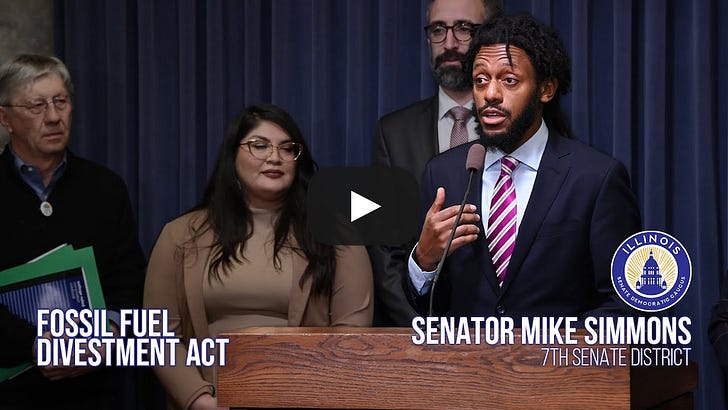
PRESS RELEASE: State Rep. Will Guzzardi, State Sen. Adriane Johnson, and members of the Climate Safe Pensions Illinois coalition announced today the introduction of the Fossil Fuel Divestment Act into the new session of the General Assembly.
“We know that fossil fuels are a highly risky and volatile investment,” said Rep. Will Guzzardi, chief sponsor of the legislation in the Illinois House. “Due to the rapid transition to renewable energy, the fossil fuel sector is forecasted to lose even greater value in the foreseeable future. We can no longer afford to have our state invest public dollars in assets that pose a risk to the hard-earned retirement savings of our public workers, that pollutes our communities and which threatens our climate.”
"The Fossil Fuel Divestment Act is a forward-thinking approach that not only protects our pension funds but also aligns with the Climate and Equitable Jobs Act’s bold vision for combating the climate crisis,“ said Sen. Adriane Johnson, chief sponsor of the legislation in the Illinois Senate. “Illinois is leading by example, proving that economic responsibility and climate action can go hand in hand."
Senate Bill 130 is part of a growing movement to assure that public pension funds no longer support the fossil fuel industry, which is the primary cause of the climate crisis. Pension funds are the world’s largest asset holders and are among the biggest institutional investors in fossil fuels - funneling billions of dollars into the polluting industry. Illinois’ five state public pension funds have several billion dollars invested in fossil fuels,* at a time when the highly volatile energy sector is among the lowest performing sectors on the S&P 500.
“Climate change is one of the greatest challenges facing our state," said Jack Swenson, of Climate Safe Pensions Illinois. “Since 1980, Illinois ranks fourth in the nation in the frequency of billion-dollar weather and climate events, resulting in an estimated $38.4 billion in damages specific to our state. The favorable climate on which Illinois farmers depend is already and will continue to be impacted by climate change. Investing our pension funds in fossil fuels is inconsistent with Illinois’ commitment to lead toward a clean energy future. We call upon our State legislature to build on that commitment while strengthening our pension system by passing the Fossil Free Divestment Act.”
Climate Safe Pensions Illinois is a coalition of organizations led by Third Act Illinois, 350 Chicago, and The Climate Reality Project Chicago Metro chapter. For more information contact Babette Neuberger at [email protected] or Brandon Tejeras at [email protected].
Submit Feedback for Cook County Environmental Justice Policy
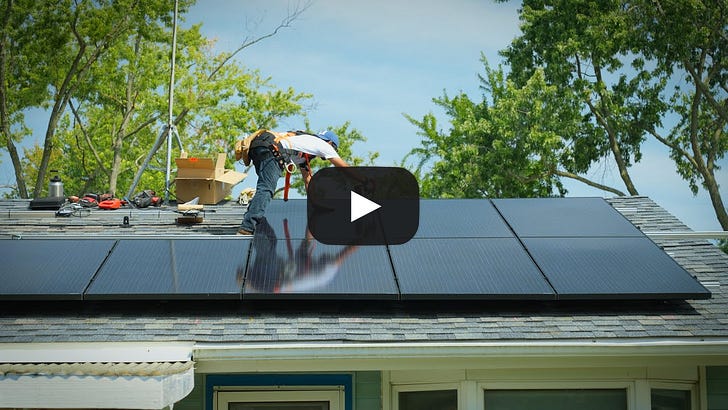
Cook County’s Department of Environment and Sustainability (DES) is establishing an environmental justice policy, which can help inform and guide programming and policy decision-making across the Offices Under the President. Environmental justice is a key component of DES’ mission as well as one of the objectives of the Cook County Policy Roadmap and its Sustainable Communities pillar, which focuses on advancing environmental justice by means such as investing equitably across the County to address historic disinvestment and inequitable pollution overburden.
You can provide input on the policy HERE- Responses will be collected until midnight February 7, 2025.
350 Chicago Bluesky Account is live!
350 Chicago has a new social media account on Bluesky! For those of you seeking to escape the app formerly known as twitter but still want to keep on top of climate news in Chicago, come follow us here: @350chicago.bsky.social
The Climate Tug-of-War: Trying to Make Progress on Climate Solutions in the Age of Trump
by Joshua Horwitz
“Drill, baby, drill.” Trump’s tagline, repeated during his campaign and again at his inauguration, pretty much sums up his administration’s stance on energy and the environment. He is making quick changes to remove federal government’s protection of the environment in line with his campaign promises and the priorities of Project 2025. Keeping up with news from the Trump administration feels like a full time job, and it can be overwhelming trying to keep on top of everything happening out of Washington. But of all his policies, his administration’s effect on climate and the environment may represent some of his most impactful and most difficult-to-undo changes.
One of Trump’s initial raft of executive orders was an immediate withdrawal from international climate agreements such as the 2015 Paris climate agreement: the international pact agreed upon by 195 countries to limit global warming. He then declared a National Energy Emergency on January 20th which intends to promote fossil fuel development over renewable sources of production, and increase energy extraction in a wide variety of locations including in Federal lands and the Arctic National Wildlife refuge. (See “What did Trump just do to the environment?” - Vox)
Trump has also surrounded himself with fossil fuel advocates and climate skeptics. He has appointed Doug Burgum, a former North Dakota governor with deep ties to the oil and gas sector, to lead the Department of the Interior. Burgum is also slated to become Trump’s new energy czar and chair of the White House Energy Council. In addition to Burgum, Trump has nominated other fossil fuel industry insiders and climate skeptics to key positions in his administration. So far there has been little opposition to Trump’s nominees: Burgum, for example was easily confirmed by the senate on January 30th, in a 79-18 vote, where all Republican senators were joined by over half of the Democrats.
There is of course a climate emergency, though not necessarily the one Trump announced: nearly the entire scientific community working on climate issues have already delivered a ‘final warning’ on climate in the Intergovernmental Panel on Climate Change (IPCC)’s 6th Assessment Report. The report warned of the little time we have left to make changes to avoid the bulk of catastrophic climate impacts- and the report is now already a few years old. We are continuing down the same path, with 2024 as the hottest year on record.
Luckily, Trump does not have unlimited free reign to make changes at a snap of his fingers (Trump wants a big expansion in fossil fuel production. Can he do that? -Vox). For one, much of the work happens on a state and local level. Pieces of state legislation such as the 350 Chicago-supported Illinois Fossil Fuel Divestment Act (described above) can still make positive change to protect our environment and climate despite the Trump administration’s priorities.
And while the federal administration can make fossil fuel extraction more attractive in certain locations, it does not necessarily mean that every potential drill site will get utilized for fossil fuel production. In many instances, new fossil fuel projects may not be economical even with Trump’s support. For years, renewables have been getting drastically cheaper in recent years and are far more competitive economically vs fossil fuels (see UN, IRENA, Forbes). Secondly, these projects can still and will still be challenged in courts by organizations like Earthjustice and the NRDC who are already gearing up to fight. These projects can’t be built overnight, and due to the extensive upfront investment, many energy projects need to count on being economically profitable for decades: not just during the next four years. So while Trump’s decisions will certainly slow progress on climate, they don’t necessarily represent a complete reversal of the progress that has been made in recent years: progress that can and will continue even under a second Trump administration.
Want to learn more about what it will take to actually install enough renewable energy resources to make a dent in our impact on climate change? Well the 350 Chicago Speaker Series is here to help. Sign up for the talk by Bill McKibben on February 25th HERE who will discuss global deployment of solar. We have touched on this topic before as well, and the excellent talk by Dr. Seth Darling is on our YouTube page below, who described what the path forward for clean energy could look like.
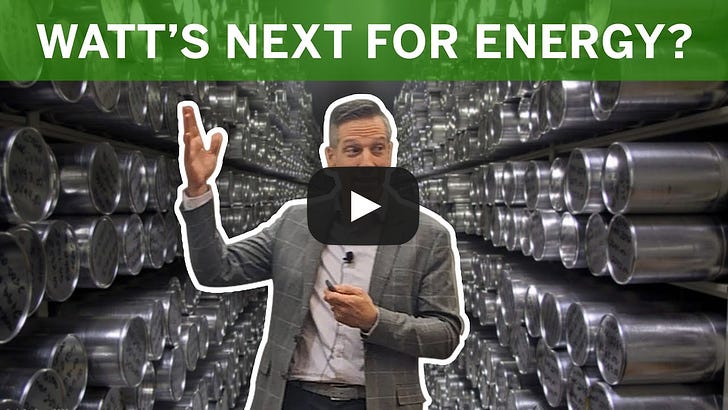
350 Chicago Newsletter is free today. But if you enjoyed this post, you can tell 350 Chicago Newsletter that their writing is valuable by pledging a future subscription. You won't be charged unless they enable payments.
